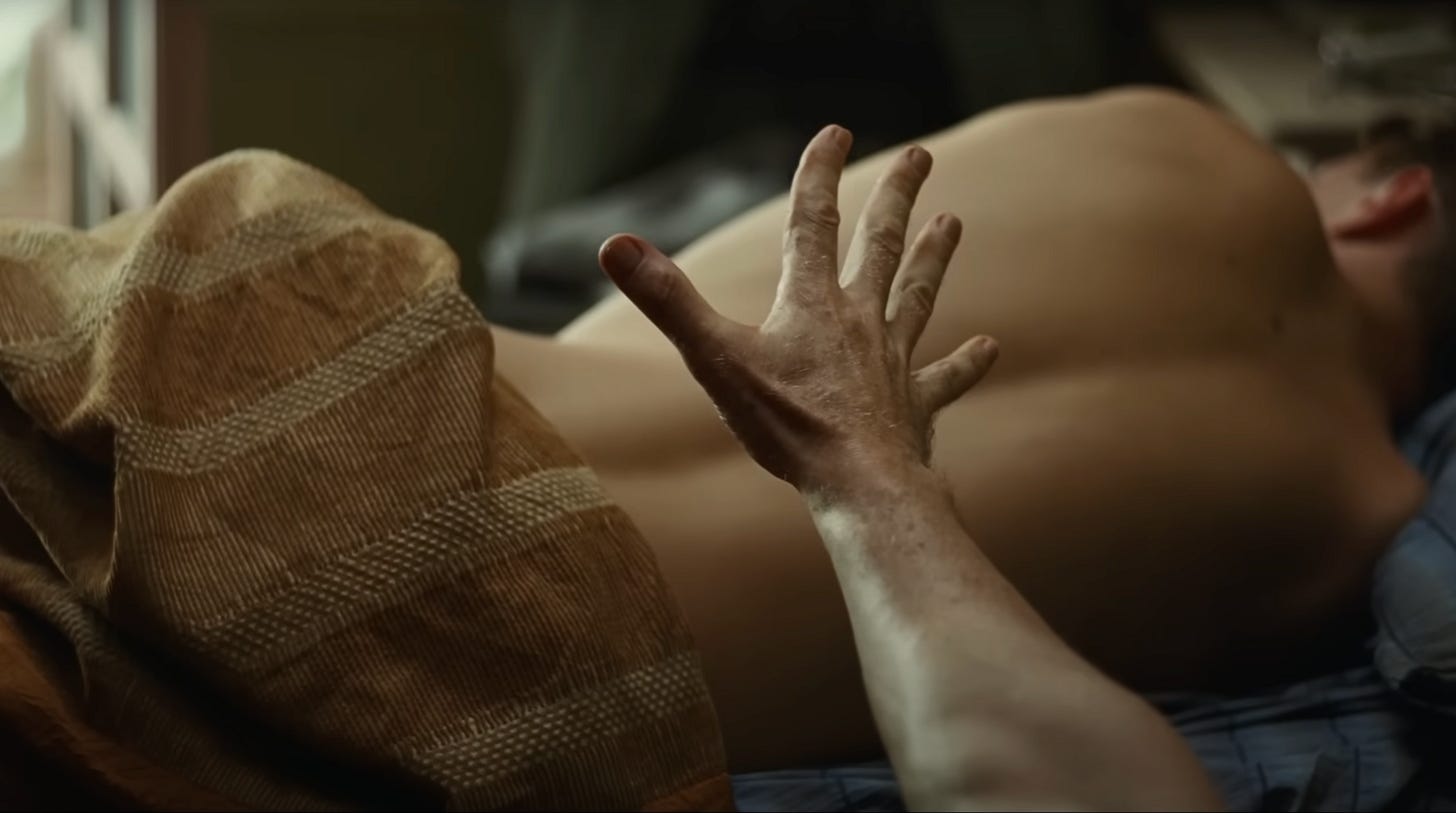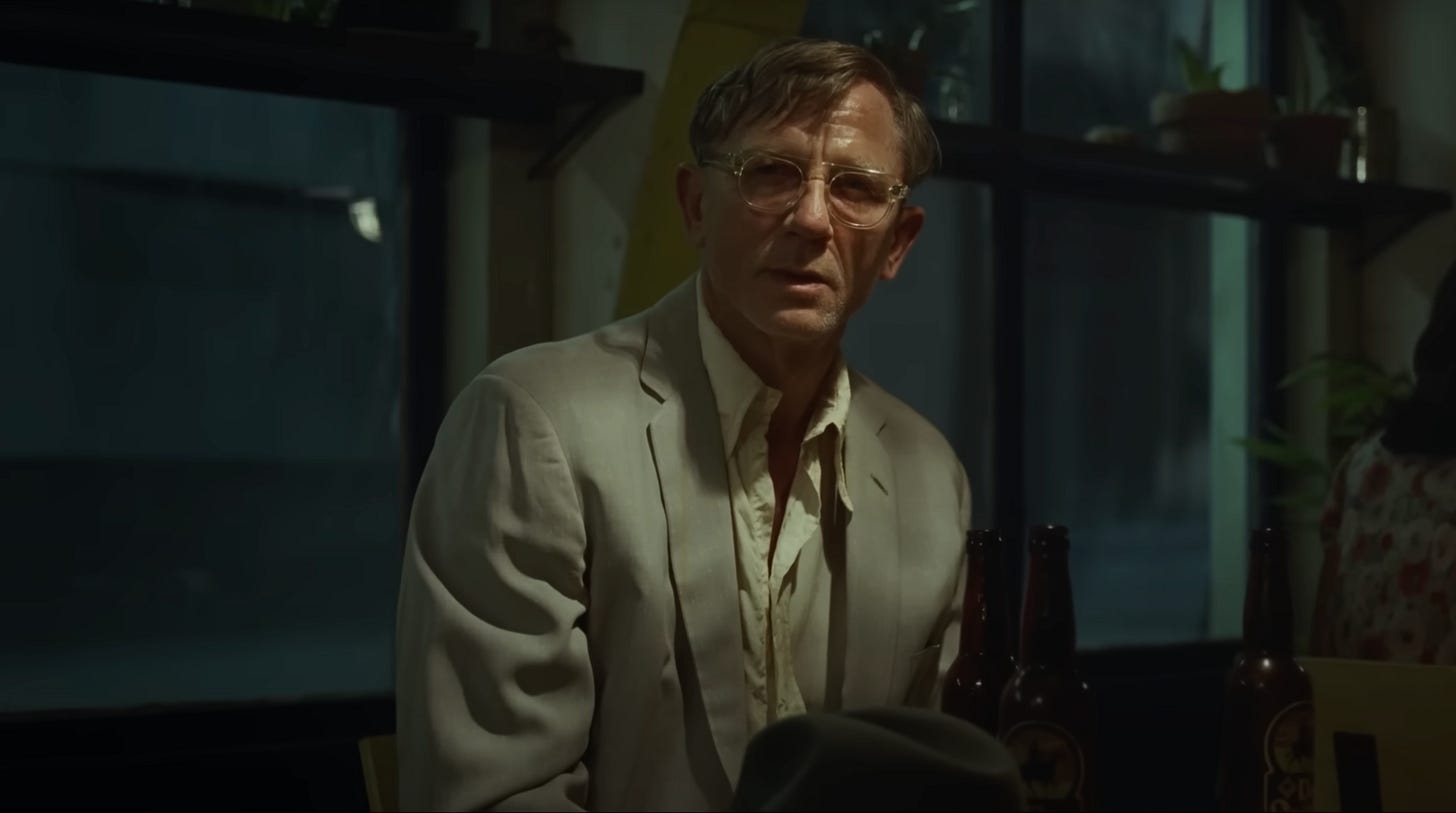After providing us with top-level filmmaking with Challengers earlier this year, director Luca Guadagnino, screenwriter Justin Kuritzkes, cinematographer Sayombhu Mukdeeprom, editor Marco Costa, and the musical duo Trent Reznor & Atticus Ross team up again, this time to deliver an adaptation of the William S. Burroughs novel, Queer. However, this work is nothing like Challengers. The team roll back from the mainstream and dive into art-house territory as they demonstrate once again that their contribution to cinema is worth your time.
We’re thrust into 1950s Mexico City, following William Lee (Daniel Craig) as he embarks on a journey of drinking in bars and seeking sexual encounters with men. Early on we witness a love-at-first-sight encounter (if you could call it love), executed with style as Come As You Were by Nirvana plays. This is where Lee casts eyes on Allerton (Drew Starkey), a younger man who provokes a lust within him that descends into what feels like somewhat of an uneasy nightmare as the pair hunt for a rare hallucinogenic drug located in the rainforest.
The visual style of Queer is extremely attractive. We see Lee’s world through a grimy, hazy, saturated colour palette as if we were looking at old photographs. The aesthetic feels like a high-end pornographic film from the seventies. However, there's nothing pornographic about Queer despite containing the occasional sex scene. The explicitness is found in its sound design, particularly when Lee goes down on Allerton, a blowjob that has never sounded so detailed before in cinema.
The top-level filmmaking makes its dominance known from the impressive experimental effects of visually expressing Lee’s desire through imagination as his silhouette melts into Allerton. There’s also a mesmerising static take with no cuts of Lee preparing to shoot up some heroin on the table in his room. And just wait to see how Lesley Manville fits into this picture. It’s during that chapter where the experimental filmmaking reaches its greatest heights.
It’s not just the technical aspects that you find yourself truly immersed in. Guadagnino does a superb job of bringing the themes of Burroughs’ novel to life as the sadness and pain of the lonely life of a gay man bleeds from the screen into your soul. Craig forces you to feel the discomfort that leaks from Lee’s aura. There’s a deep uneasy feeling throughout Queer as we experience a dream of this individual's life yet it also feels like a nightmare. This balance between the two states is unsettling, combined with the ache of a middle-aged homosexual trying to make up for lost time in a life that never feels particularly special. Like the original work, Queer invites you to explore the horrors of homosexuality.
Guadagnino and Kuritzkes’s adaptation isn’t entirely faithful to the events in the novel. Like his 2018 adaptation of Dario Argento’s Suspiria (1977), Guadagnino works strongly with the themes of the original work and allows plot events and characters to deliver their own originality. The diversions are interesting, although minor. Event wise a lot is missing in comparison to the novel. You come to understand that scenes such as Lee fantasising over an erotic gathering of underage boys may have been difficult to produce or get passed by the film censors. Guadagnino and Kuritzkes compensate by exploring the psychology of Burroughs’ inspiration for writing the novel, adding a layer of interest that brings a refreshing approach to adaptations in cinema.
Venice Film Festival chief Alberto Barbera revealed that he “felt bad” we’d not get to see the original cut that had a running time of three hours and twenty minutes in comparison to the two hours and fifteen minutes of the theatrical release. The festival boss said he preferred the longer cut that featured “all of [Daniel] Craig's wanderings in the gay clubs of Mexico City, with this incredible fauna of gay life, in search of adventure.” If anything, that’s the only thing Queer gets wrong- we don’t see enough of it. We can only hope a director’s cut gets delivered in the future. However, Guadagnino may have his mind occupied on bigger challenges such as a new upcoming adaptation of the Brett Easton Ellis novel, American Psycho. If Queer is anything to go by, Guadagnino may prove himself to be the contemporary master of filmic adaptations as he tackles one of the most disturbing examples of popular literature.
Out in UK cinemas December 13th







